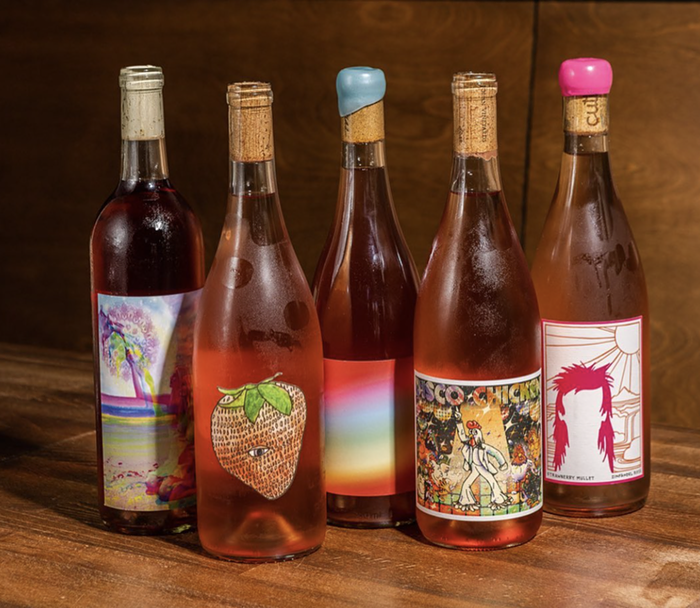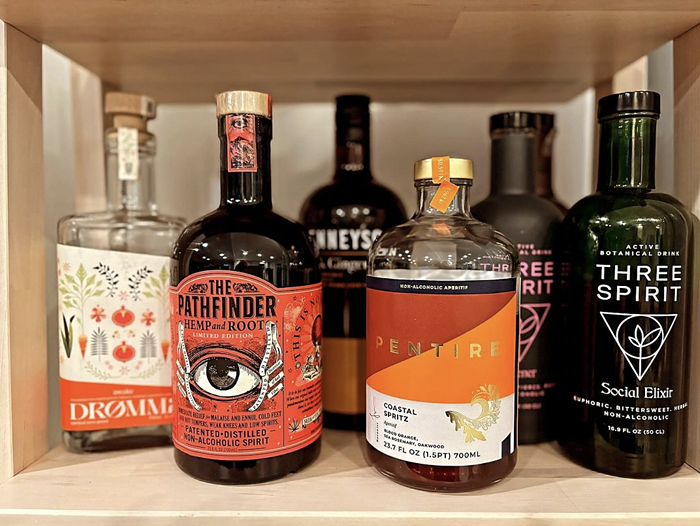I once took a date to my favorite Japanese restaurant. He was a nice, self-proclaimed, sushi-loving guy who spoke lovingly about cold sake, so I was optimistic. But when he bit into the appetizer I ordered—sunomono topped with pickled mackerel—I saw the look on his face turn to violent disgust. I knew immediately our relationship would never last; I have since been reluctant to eat sushi with people I don't know very well.
I recently learned, from an article on Slate.com, that sushi was born of a simple, practical need. Before refrigeration, sushi was a convenient way to preserve fish; it was pickled and served as street food. Our current obsession with freshness is a distinctly modern development in the history of sushi. I celebrate this fact as personal validation: My beloved sour mackerel that displeased my date is, in fact, a much more authentic sushi offering than his California roll.
However, I'm grateful that these days what we value most in sushi is freshness. There are few things more pleasurable to me than savoring the delicate, sea-kissed texture and oils of raw, unadulterated fish flesh and moist, vinegary rice. The sensual joys of sushi are infinitely enhanced when you can share the experience with someone who possesses a similar passion.
I was nervous about taking a date to Kisaku, located in the bewitchingly named neighborhood of Tangletown. Though I've heard for years that Kisaku serves up some of the best sushi in town, I grew wary as we approached. I am predisposed to hating the sort of upscale, modern, Western decor (not to mention upscale Western clientele) with which Kisaku is filled. But Kisaku laughs in the face of my cynicism—the food is as good as it's rumored to be and our server, Leslie, was a straight-shooting star. With the aid of a seemingly bottomless bottle of sake and a handsome dinner companion who, I was pleased to discover, shares a love for oysters, fatty tuna, and an openness to eating deep-fried shrimp heads, Kisaku delivered one of the better meals I've had in a long time.
An appetizer of four Penn Cove oysters with ponzu sauce ($6.50) was nothing short of mind-blowing. The oysters were obscenely fresh and felt soft on the tongue; as they melted, they released the singular flavor of gritty seawater. The delicate drizzle of ponzu and soy was perfect—just the right amount of tart citrus and dark saltiness to complement the natural flavors. (I loved these oysters so much I saved one for the cherished last bite of my meal.
Our selection of nigiri—wild sockeye salmon (two for $4), yellowtail (two for $4), raw sweet shrimp (two for $5.50), scallop (two for $4)—were perfect samples of how pristine seafood tastes best in the hands of experts who know it's best to let the integrity of the fish speak for itself. Kisaku also offers an assortment of special nigiri, subject to availability, that is worth inquiring about with your server. Fatty tuna (chutoro, two for $6.50) was a buttery, melty dream come true, and if the very fatty tuna (otoro, two for $7.50) is available, don't miss it. A spider roll ($6.50), generously packed with just-fried soft-shell crab, was a delightful combination of warm and cool, smooth and crunchy.
I am physically unable to leave a sushi dinner without ordering a spicy tuna roll, one of my standard dishes for measuring a restaurant's worth. My only issue with Kisaku is the frustratingly subpar spicy tuna roll ($5). Kisaku seems to follow the tragic, all-too-common trend of using past-its-prime tuna and (unsuccessfully) masking its unpleasantly fishy flavor with chili sauce, rather than enhancing the flavor of fresh tuna with fire.
On the opposite end of town, Vi Bacchus Sake Bar & Bistro, Capitol Hill's newest sushi spot, also employs the maddening disguise-the-old-tuna-with-chili-sauce method of making a spicy tuna roll ($5.50). Sadly, Vi Bacchus's whole approach to sushi is about overwhelming distraction rather than simple, straightforward tastiness. The menu comprises mainly overpriced rolls with names like Crazy Horse ($10), Super Dragon ($14), and King "Capital" Hill ($12). These rolls, all too many of which contain tempura, sauces, and layers and layers of fish, disguise and overseason the seafood they should be highlighting. (Kisaku may cater to Westerners in its decor, but Vi Bacchus's food is Americanized sushi for people who prefer their raw fish fried, with mayonnaise and barbecue sauce. I can't even begin to address the hodgepodge decor, which still utilizes some rustic Italian furnishings of the former tenant Osteria La Spiga.) The spider roll (an unbelievable $12) was rolled in dry, day-old rice and, most distressingly, was so poorly rolled that the filling fell out once a piece was lifted with chopsticks.
The most painful part of eating at Vi Bacchus (overlooking the lukewarm, salt-saturated miso soup served in a mug ) was that the quality of the nigiri plate (tuna, yellowtail, eel, shrimp, salmon; $16) was actually decent. Without all the cheesy trappings, Vi Bacchus might be pretty good. As my friend put it, "If I had earplugs and an eye mask and only ordered sashimi, this place would be great." Thank God I took one of my best friends to dinner with me at Vi Bacchus instead of a date—it's a sushi experience so insurmountably bad that, while it might bring old friends closer together, it would probably keep two strangers apart.


















